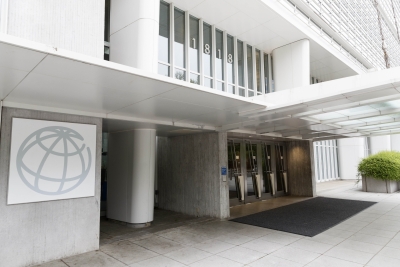World Bank names Harvard professor as chief economist
By IANS | Published: May 21, 2020 08:42 AM2020-05-21T08:42:21+5:302020-05-21T08:55:15+5:30
World Bank Group President David Malpass announced that Harvard University professor, Carmen Reinhart has been appointed as its new ...

World Bank names Harvard professor as chief economist
World Bank Group President David Malpass announced that Harvard University professor, Carmen Reinhart has been appointed as its new vice president and chief economist, effective on June 15.
"I am very pleased to welcome Carmen to the World Bank Group, as we boost our efforts to restore growth and meet the urgent debt and recession crises facing many of our client countries," Malpass said in a statement on Wednesday.
"Carmen has dedicated her career to understanding and surmounting financial crises in both advanced and developing economies in order to achieve growth and higher living standards," he said.
Reinhart, an economist on international finance and financial crises, is widely known for her award-winning scholarly history book on financial disasters, "This Time is Different: Eight Centuries of Financial Folly", written with Harvard economist Kenneth Rogoff, reports Xinhua news agency.
The appointment came after the World Bank announced Tuesday that its emergency operations against COVID-19 have reached 100 developing countries, home to 70 per cent of the world's population.
The assistance marks a milestone in implementing the World Bank's pledge to make available $160 billion in grants and financial support over a 15-month period to help developing countries respond to the health, social and economic impacts of COVID-19 and the economic shutdown in advanced countries.
In an interview with The Harvard Gazette published on Wednesday, Reinhart warned that the health crisis caused by the COVID-19 pandemic was morphing into a financial crisis.
"If it's not over on the disease, it's not over on the social distancing and the business closures, and therefore, it's not over on the balance sheet effects.
"That makes it a financial crisis until the core health problem gets resolved," she said.
( With inputs from IANS )
Open in app